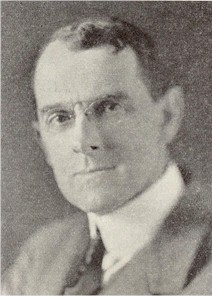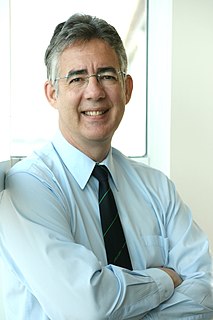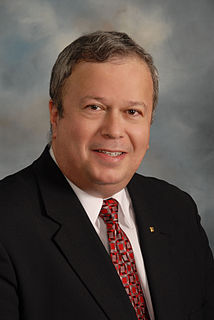Related Research Articles
Simon Ramo was an American engineer, businessman, and author. He led development of microwave and missile technology and is sometimes known as the father of the intercontinental ballistic missile (ICBM). He also developed General Electric's electron microscope. He played prominent roles in the formation of two Fortune 500 companies, Ramo-Wooldridge and Bunker-Ramo.

Yaakov Ziv is an Israeli electrical engineer who, along with Abraham Lempel, developed the LZ family of lossless data compression algorithms.
James Donald Meindl is director of the Joseph M. Pettit Microelectronics Research Center and the Marcus Nanotechnology Research Center and Pettit Chair Professor of Microelectronics at the Georgia Institute of Technology in Atlanta, Georgia. He won the 2006 IEEE Medal of Honor "for pioneering contributions to microelectronics, including low power, biomedical, physical limits and on-chip interconnect networks.”
The Mercer University School of Engineering (MUSE) is one of Mercer University's twelve colleges and schools. MUSE, located on Mercer's main campus in Macon, Georgia, offers 10 different engineering-related majors and enrolls approximately 650 students. US News and World Report ranks the school among the best engineering schools in the southern United States.
Archie Waugh Straiton was a physicist, who studied radio propagation.
Arthur David Hall III was an American electrical engineer and a pioneer in the field of systems engineering. He is known as author of a widely used engineering textbook "A Methodology for Systems Engineering" from 1962.

Asad Ali Abidi is a Pakistani-American electrical engineer. He serves as a tenured professor at University of California, Los Angeles, and is the inaugural holder of the Abdus Salam Chair at the Lahore University of Management Sciences (LUMS). He is best known for pioneering RF CMOS technology during the late 1980s to early 1990s. As of 2008, the radio transceivers in all wireless networking devices and modern mobile phones are mass-produced as RF CMOS devices.

John Boswell Whitehead was an American electrical engineer and a professor at Johns Hopkins University as well as the dean of the School of Engineering. Whitehead was president of the American Institute of Electrical Engineers from 1933 to 1934. In 1941, Whitehead received the IEEE Edison Medal for "contributions to the field of electrical engineering, his pioneering and development in the field of dielectric research, and his achievements in the advancement of engineering education".

Mark W. Spong is an American roboticist. He is a Professor of Systems Engineering and Electrical and Computer Engineering in the Erik Jonsson School of Engineering & Computer Science at the University of Texas at Dallas (UTD). He served as Dean of the Jonsson School and the Lars Magnus Ericsson Chair in Electrical Engineering from 2008-2017. Before he joined UTD, he was the Donald Biggar Willett Professor of Engineering, Professor of Electrical Engineering, Research Professor of Coordinated Science Laboratory and Information Trust Institute, and Director of Center for Autonomous Engineering Systems and Robotics at the University of Illinois at Urbana-Champaign.
Leah H. Jamieson is an American engineering educator, currently the Ransburg Distinguished Professor of Electrical and Computer Engineering at Purdue University. From 2006-2017, she served as the John A. Edwardson Dean of Engineering at Purdue. She is a member of the US National Academy of Engineering and served as the 2007 President and CEO of the Institute of Electrical and Electronics Engineers (IEEE).
Sung-Mo “Steve” Kang is an electrical engineering scientist, professor, author, inventor, entrepreneur and 15th president of KAIST. Kang was appointed as the second chancellor of the University of California, Merced in 2007. He was the first department head of foreign origin at the electrical and computer engineering department at the University of Illinois at Urbana-Champaign. Dr. Kang teaches and has written extensively in the field of computer-aided design for electronic circuits and systems; he is recognized and respected worldwide for his outstanding research contributions. Dr. Kang has led the development of the world’s first 32-bit microprocessor chips as a technical supervisor at AT&T Bell Laboratories and designed satellite-based private communication networks as a member of technical staff. Dr. Kang holds 15 U.S. patents and has won numerous awards for his ground breaking achievements in the field of electrical engineering.
Hisashi Kobayashi is the Sherman Fairchild University Professor of Electrical Engineering and Computer Science, Emeritus at Princeton University in Princeton, New Jersey. His fields of expertise include applied probability; queueing theory; system modeling and performance analysis; digital communication and networks; and network architecture. He was a Senior Distinguished Researcher at the National Institute of Information and Communications Technology (NICT), Japan from September 2008 to March 2016.
Charles Sidney Burrus is an American electrical engineer and the Maxfield and Oshman Professor Emeritus of Electrical and Computer Engineering at Rice University in Houston, Texas. He is widely known for his contributions to digital signal processing, especially FFT algorithms, IIR filter design, and wavelets.

Moshe Kam is an American engineering educator presently serving as the Dean of the Newark College of Engineering at the New Jersey Institute of Technology. Until August 2014 he served as the Robert G. Quinn Professor and Department Head of Electrical and Computer Engineering at Drexel University. In 2011, he served concurrently as the 49th President and CEO of IEEE. Earlier he was IEEE's Vice President for Educational Activities (2005–2007) and IEEE's Representative Director to the accreditation body ABET. Kam is known for his studies of decision fusion and distributed detection, which focus on computationally feasible fusion rules for multi-sensor systems.
Bruce Eisenstein is an engineering educator serving as the Arthur J. Rowland Professor of Electrical and Computer Engineering. He was formerly Interim Dean and Vice Dean of the College of Engineering at Drexel University. He has published nearly 50 papers in the areas of digital signal processing, pattern recognition, deconvolution, along with biomedical engineering. He also served as president of the IEEE in 2000.
Geoffrey Charles Orsak is an engineering academic. He was dean of the School of Engineering and Applied Science at Southern Methodist University, and in 2012 he served briefly as the 18th president of the University of Tulsa in Tulsa, Oklahoma.
Andrew Patrick Sage was an American systems engineer and Emeritus Professor and Founding Dean Emeritus at the School of Information Technology and Engineering of the George Mason University.
John Grist Brainerd was an American electrical engineer who served as principal investigator on the project to build ENIAC, the first general-purpose electronic digital computer. Later, he was dean of the Moore School of Electrical Engineering at the University of Pennsylvania.
James F. "Jim" Gibbons is an American professor and academic administrator. He is credited with starting the semiconductor device fabrication laboratory at Stanford University that would make it become the semiconductor ecosystem that became the Silicon Valley.
James D. Plummer is a Canadian-born electrical engineer. He is the John M. Fluke Professor of Electrical Engineering at Stanford University, and from 1999 to 2014 served as Frederick Emmons Terman Dean of the School of Engineering.
References
- ↑ "Aldridge To Retire As Dean Mercer University's Engineering School". Duluth Weekly. February 4, 2008. Archived from the original on July 17, 2011. Retrieved 2008-09-11.